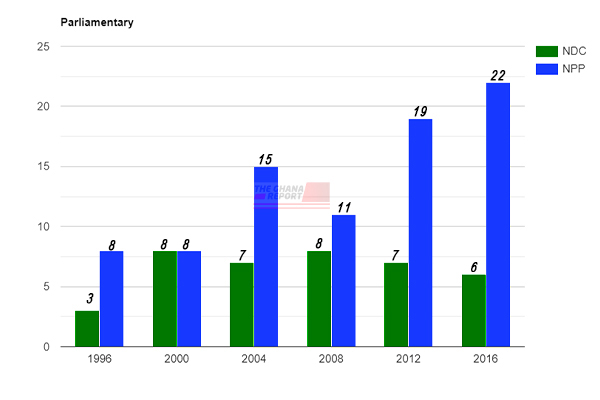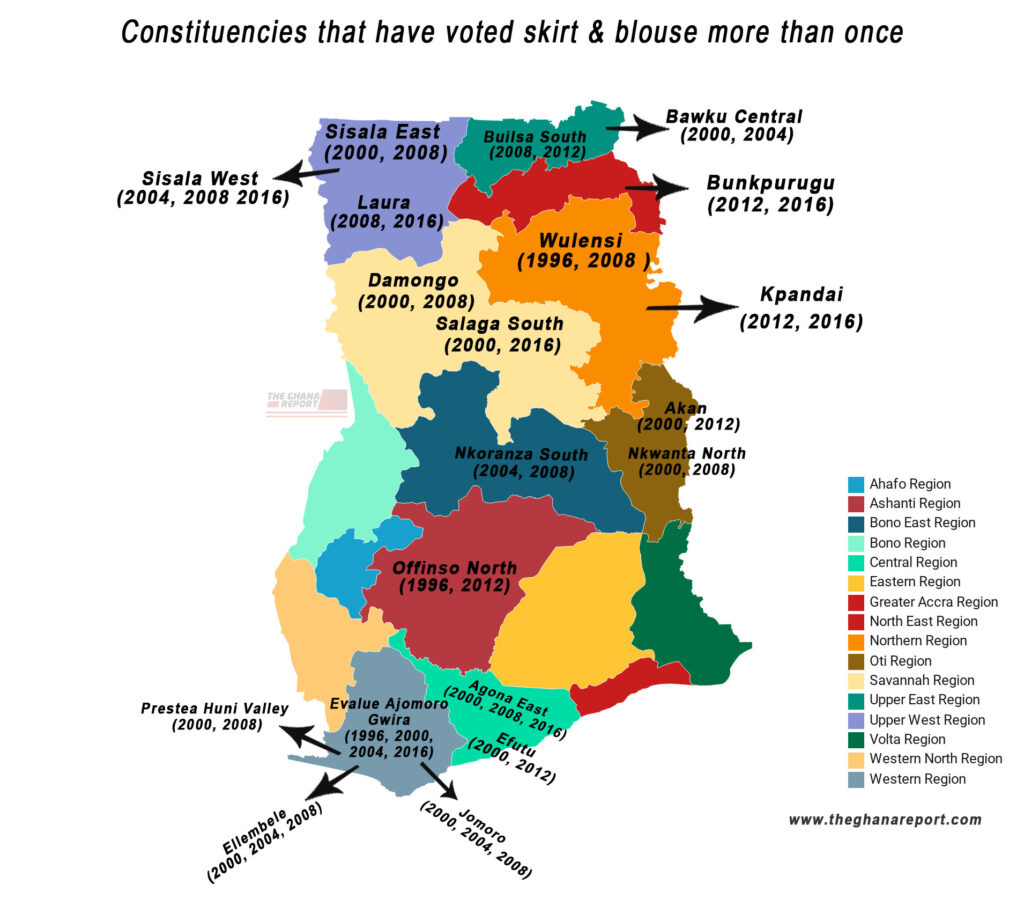CDD research predicts regions more likely to vote skirt & blouse
About 23% of Ghanaian voters say they will vote skirt and blouse on December 7 to elect a president and parliamentary candidate from different parties, a Centre for Democratic Development (CDD) Ghana survey has found.
According to the findings of the [pre-election survey conducted from September 28 and October 16, 2020, about one in four Ghanaians say they would vote for “presidential and parliamentary candidates from different political parties.”
Voters in the North East, Oti and Volta regions are more inclined to vote skirt and blouse, which has become a growing phenomenon among electorates who are torn between parties and personalities.
Voters in Western North are the least likely to vote skirt and blouse as only 14% said “yes” to when they were asked whether in the 2020 elections they would vote for a parliamentary candidate from a political party different from the one whose candidate they voted for in the presidential election.
However, the majority of the respondents—65% said they would endorse a parliamentary candidate and presidential candidate from the same party.
The research sampled 2,400 respondents from all demographies throughout the 16 regions of Ghana with the margin of error pegged at ±2.
The research also found that supporters of smaller parties (46%) are likely to vote skirt blouse compared to the supporters of the two major parties (National Democratic Congress (NDC)—24% and New Patriotic Party (NPP)—17%.
Others will also vote skirt and blouse based on religion—Islamic (26%) and Christian (23%).
From the report, rural dwellers (24%) are more likely to vote skirt and blouse compared to urban (23%).
Skirt and blouse became part of the fourth republic’s competitive elections from 1996 as the NPP declined to partake in the 1992 parliamentary elections over allegations of vote-rigging in the 1992 elections which J.J, Rawlings won.
Theghanareport.com’s data analysis from 1996 indicates that skirt and blouse voting favour National Democratic Congress (NDC) presidential candidates than their parliamentary candidates.
History of skirt and blouse in Ghana
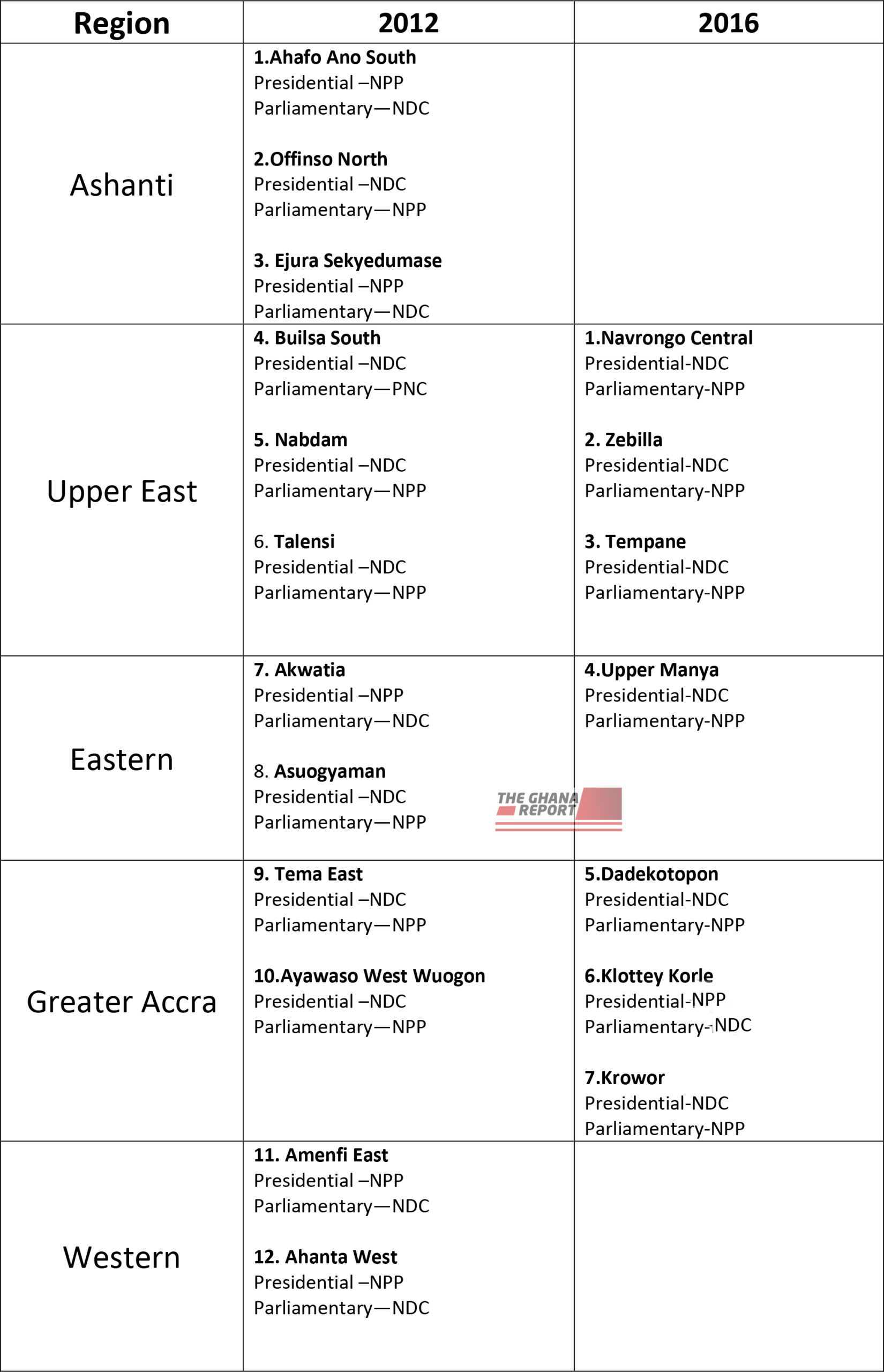
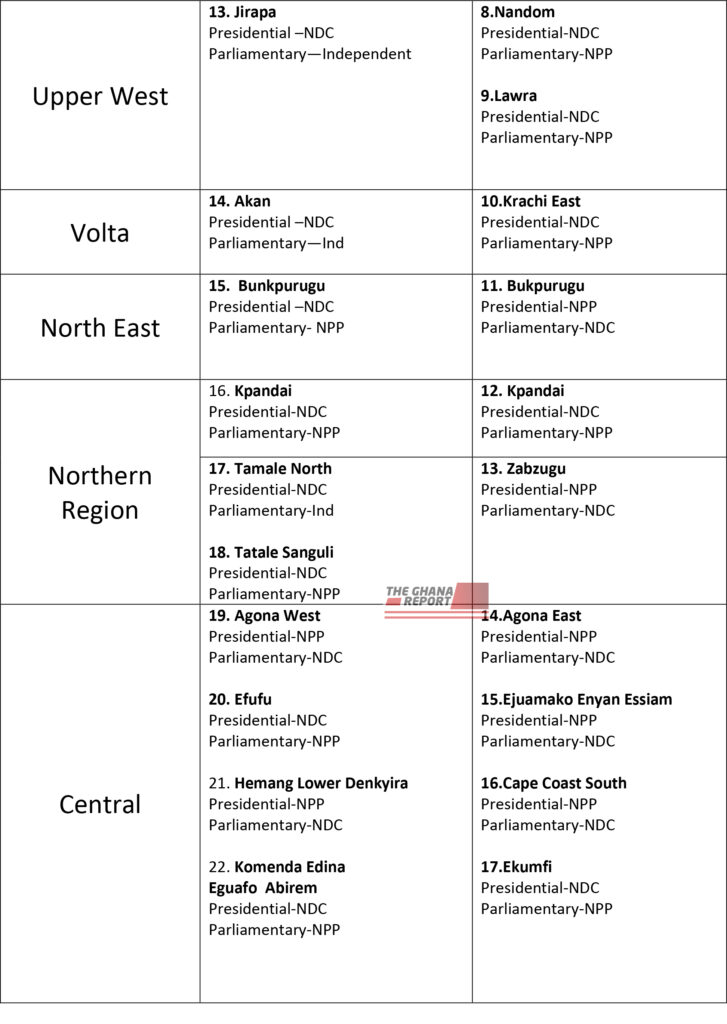
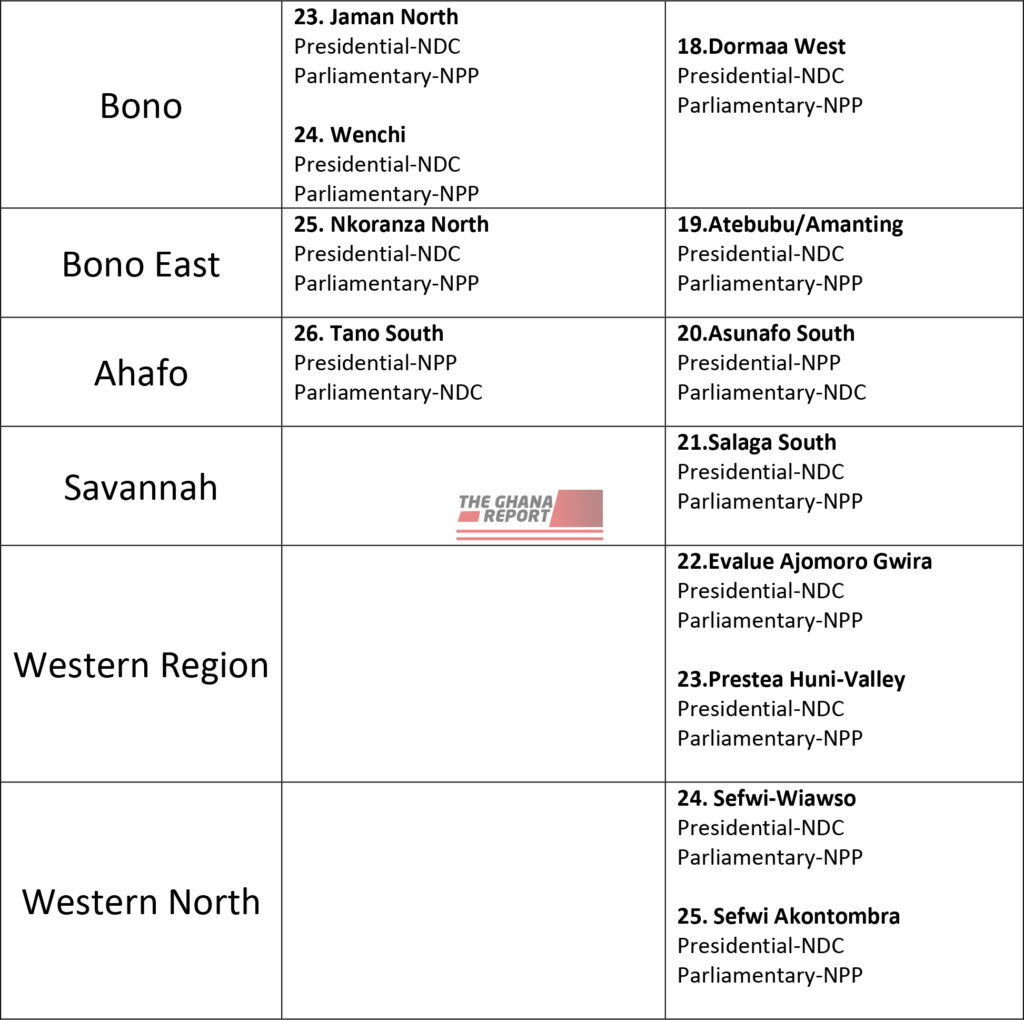
Only two out of the 26 constituencies that voted ‘skirt and blouse’ in the 2012 election repeated the practice in 2016.
On the flip side, New Patriotic Party (NPP) parliamentary candidates performed better than their NDC counterparts in skirt and blouse votes.
Mahama won 22 out of the 28 constituencies that voted skirt and blouse in 2016. Nana Akufo-Addo won six. But that also means NPP parliamentary candidates won in 22 out of the 28 constituencies.
Electoral records from 1996 to 2016
